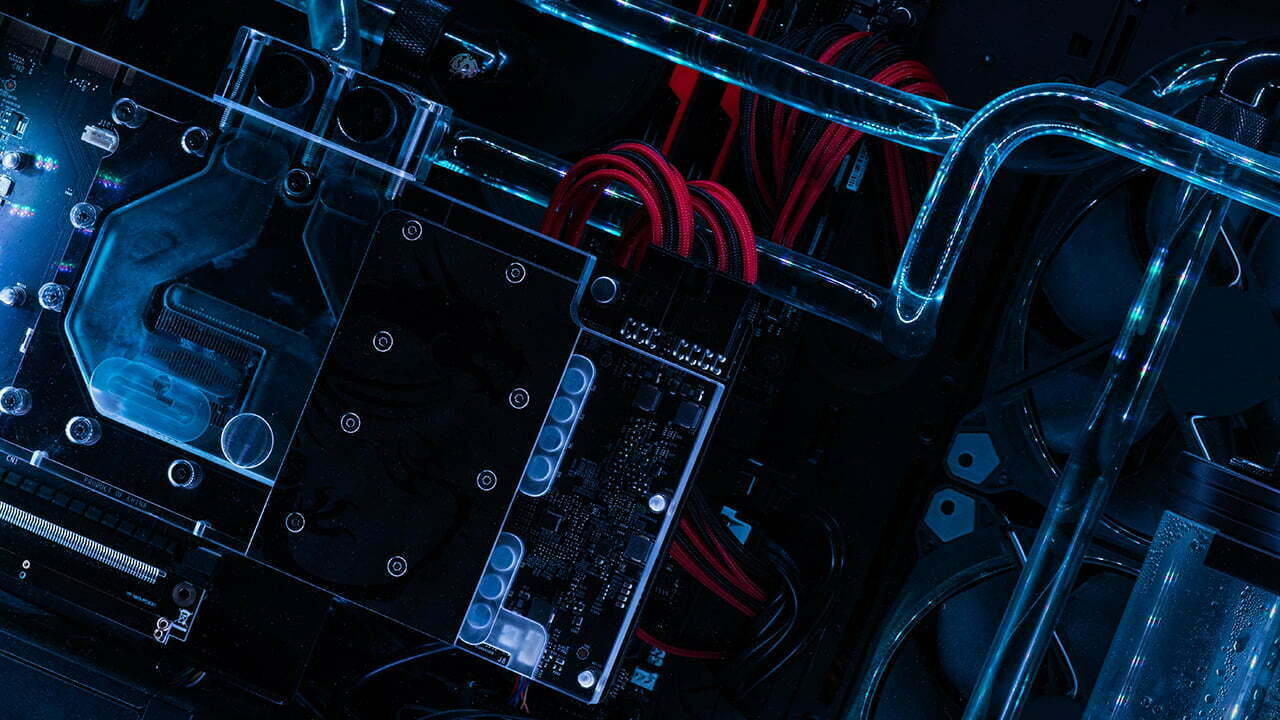There’s no denying that it’s not normal for your computer or laptop to make roaring and making excessive noises. These sounds indicate a serious problem with the system. So, it’s normal for you to wonder why does my computer sound like a jet.
If your computer sounds like a jet, it could be for clogged fans, loose or inadequate fans, vibrating components, an overheating processor, and faulty fans. It could also be due to the hard disk and power supply. Regular cleaning, securing loose components, and upgrading fans can help reduce the noise.
You may also want to consider upgrading your cooling system and changing the thermal paste of the system’s cooling system. Want thorough guidance on the topic? This article has got your back!
Why Does Your Computer Sound Like a Jet Engine?
When your computer emits a noise resembling a jet engine, it can be both alarming and bothersome. Understanding the underlying reasons behind this noise is crucial for finding the appropriate solutions. Take a look:
1. Dust and Blockage
One significant reason why your computer fan may produce a jet engine-like sound is the accumulation of dust and blockage within the system.
Over time, dust, pet hair, and lint can settle inside your computer, obstructing proper airflow and causing the fans to work harder.
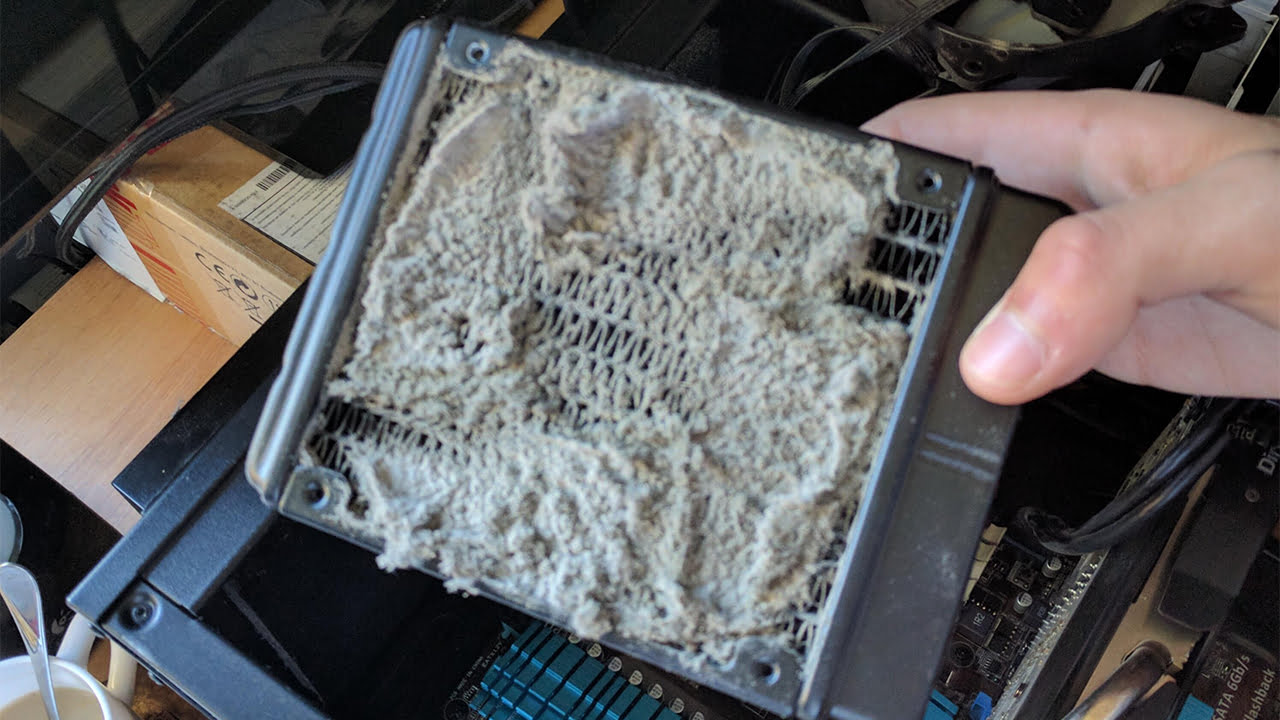
When fans become clogged, they struggle to cool down the components effectively, resulting in increased noise.
2. Loose or Inadequate Fans
Another potential culprit for the jet engine noise is loose or inadequate fans. If the fans within your computer are not properly secured, are too small for the cooling requirements, or lack sufficient power, they can generate excessive noise.
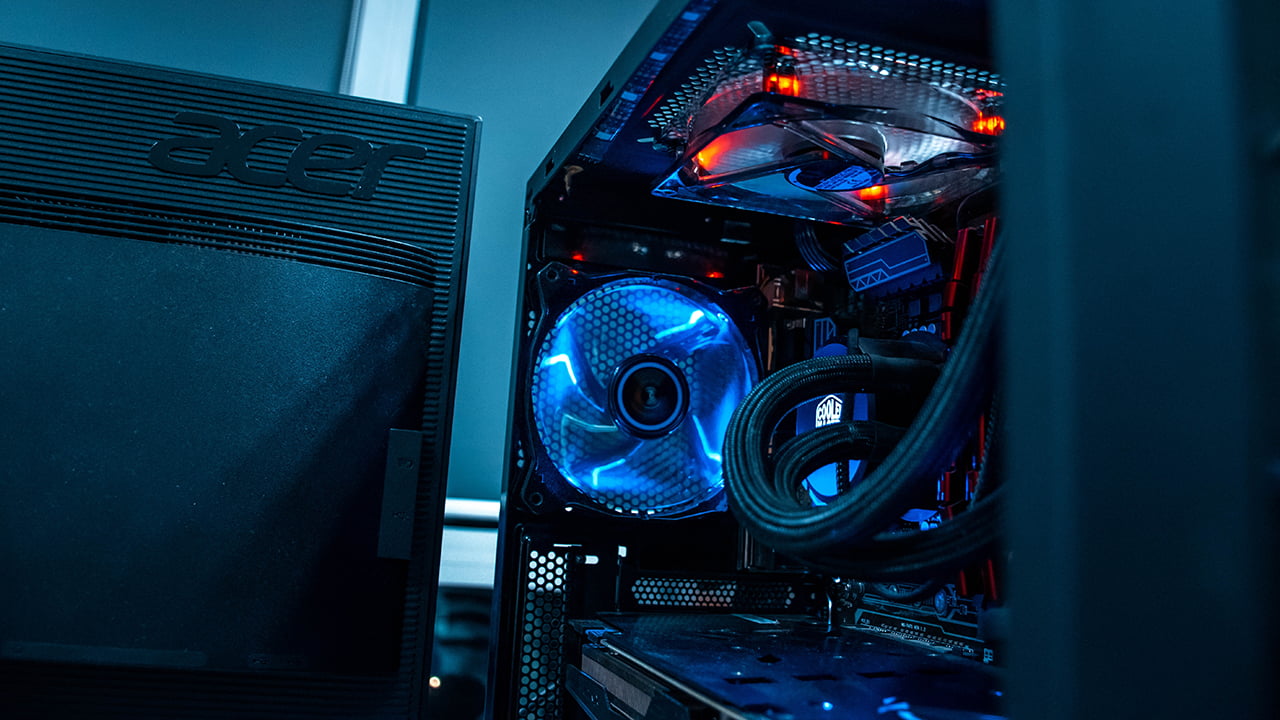
As computers age, the wear and tear on fans can lead to increased vibrations and louder operation sounds.
3. Vibrating Components
Loose internal components can also make your computer or laptop sound like a jet engine. The resulting noise becomes amplified when certain components come loose and vibrate against the computer frame.
4. Overheating Processor
An overheating processor can cause your computer fans to operate at high speeds, resulting in a jet engine-like noise. The intensity of tasks, such as gaming or video editing, can significantly load the processor, leading to increased heat generation.
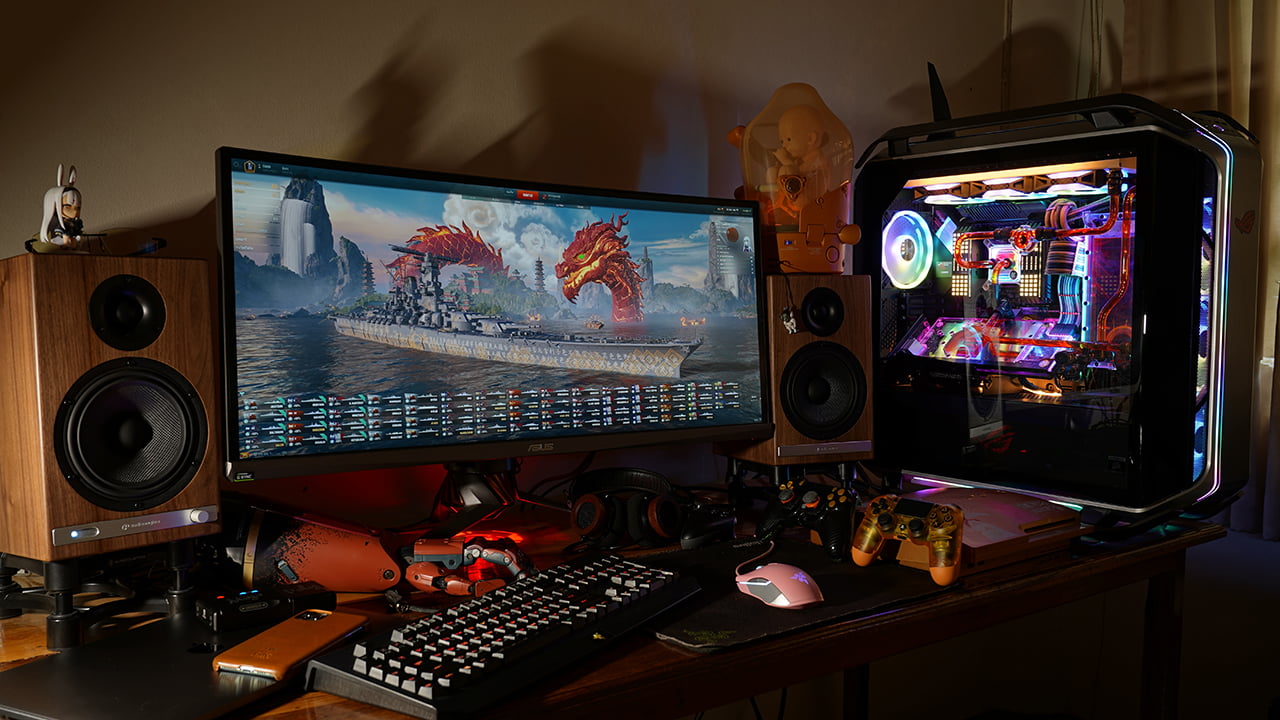
If the cooling system is unable to handle this excess heat efficiently, the fans will spin faster, producing a louder, high-pitched noise.
In addition, the thermal paste of the cooler may have hardened up, which is resulting in inadequate heat transfer. This will make the CPU cooler work too hard to keep the processor at optimal temperature.
5. Faulty Fan Blade or Motor
A faulty fan blade or motor is another potential reason for your computer sounding like a jet engine.
Over time, fan blades can become damaged or bent, while the motor may wear out, reducing cooling efficiency and resulting in noisy operation.
6. Power Supply Issues
A poor power supply can sometimes contribute to a high-pitched buzzing noise resembling a jet engine. Wondering how?
An inadequate power supply or using the wrong adapter can cause the processor to work under non-ideal conditions, leading to overheating and forcing the cooling fan to spin faster, resulting in louder noise.
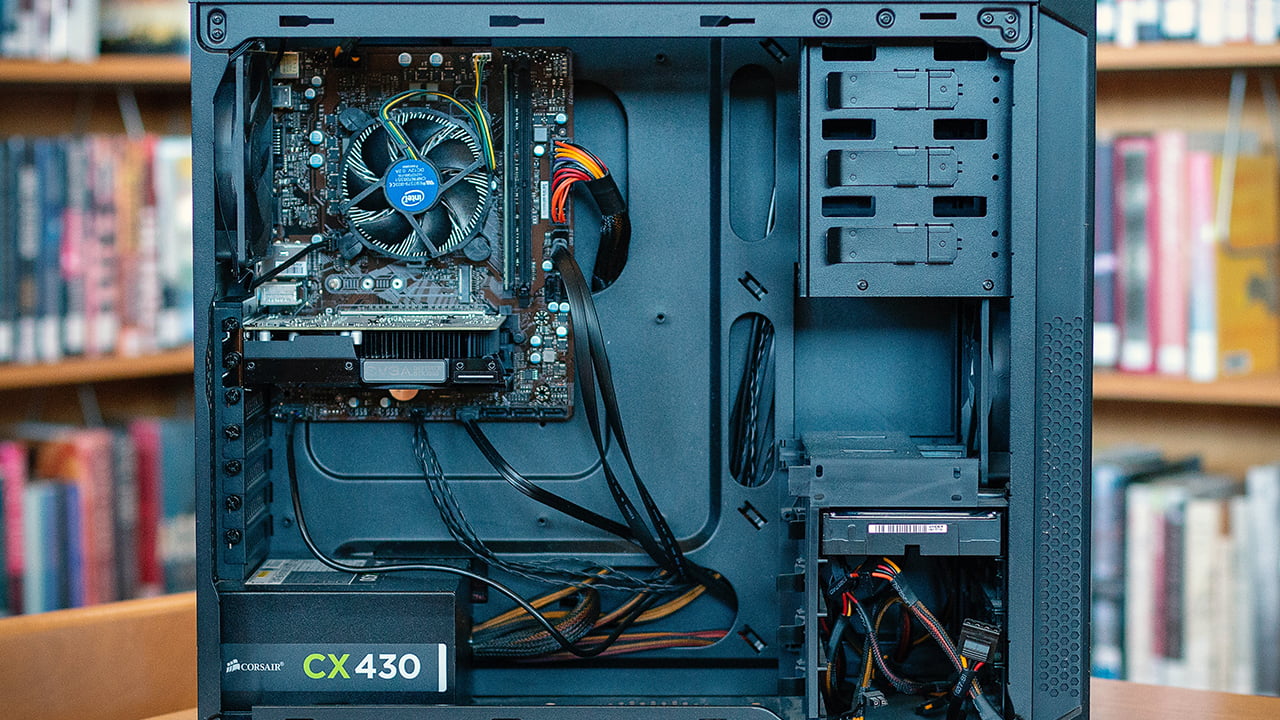
7. Hardware Problems
If none of the aforementioned issues are causing your laptop or computer to make a loud noise, a faulty internal component may be the root cause.
Loose components around the cooling system can vibrate and generate a jet engine-like sound. Storage disks, especially old HDDs, may also produce low-pitched noise during heavy-duty tasks.
What to Do When Your Computer or Laptop Sounds Like a Jet Engine
Excessive noise from your computer can be disruptive and may indicate underlying issues that require attention. Let’s explore all the potential solutions to give you a thorough idea about the excessive sound issue.
1. Move Your Laptop or Computer to a Cooler Location
See if the computer is resting on a flat surface and ensure that rubber feet are in place to absorb vibrations.
If the room temperature is high or the computer is overheating, consider using cooling pads or moving the computer to a more suitable location.

However, be cautious not to increase insulation around the computer, as this may cause fans to work harder.
2. Tighten All the Components Inside and Remove the Dust
Open up your computer and inspect for any loose attachments, such as screws, gaskets, and grommets. Tighten loose screws and replace any missing or worn grommets or gaskets.
Use a soft bristle brush and compressed air to remove dust from the internal components. Take care not to force air into the fans, as it can damage them.
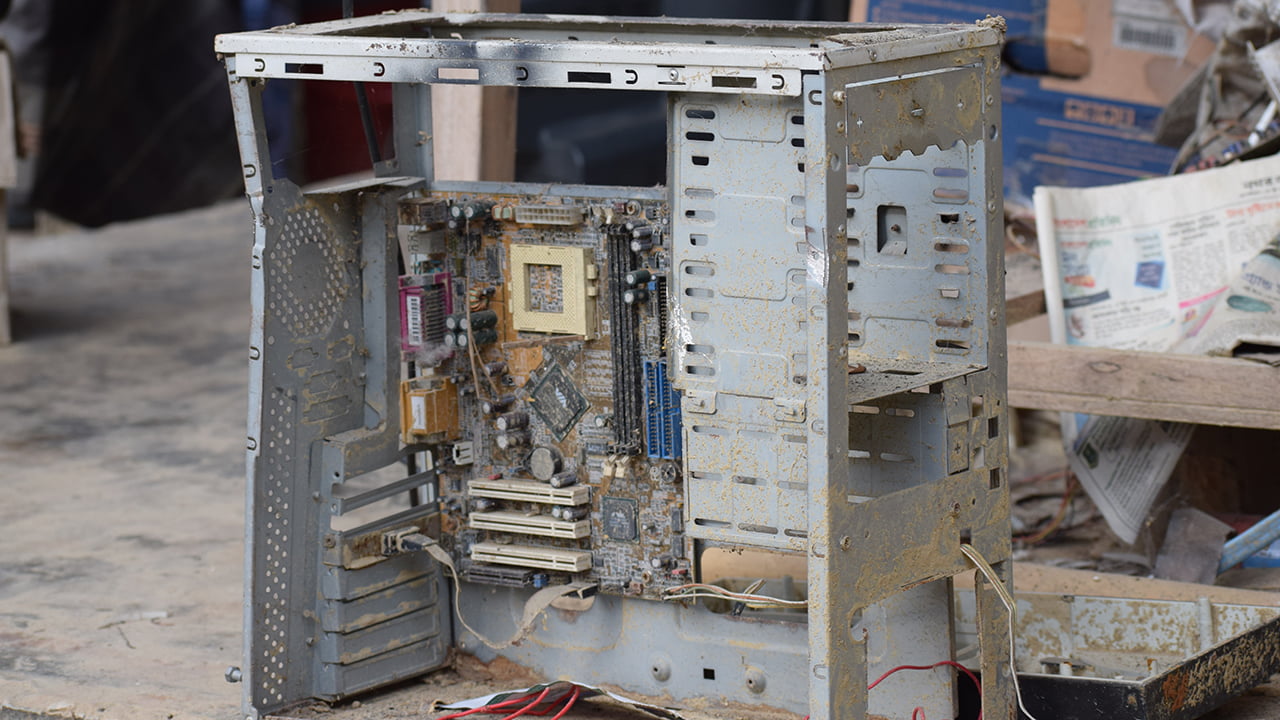
If the noise persists and seems to come from the hard disk, consider upgrading to a solid-state drive (SSD) if feasible.
Note that frequent clicking noises from the hard drive could indicate a hardware failure, and it’s important to back up your data before it becomes unrecoverable.
3. Install New Cooling Fans
Replace old fans with larger ones that can move more air while generating lower noise levels. Ensure you know the physical size of your current fans to order appropriate replacements.
If the power supply is overheating due to increased component load, consider upgrading to a new power supply unit that includes a fan for better cooling.
Add sound insulation cautiously, as it can trap heat and cause fans to work harder. Balancing insulation with proper airflow is crucial.
4. Change the Thermal Paste
Installed new cooling fans, but the noise issue is still there? In that case, you should disassemble the cooling system of your laptop or computer.
Wipe the old thermal paste with an alcohol pad, and then put a dollop of new thermal paste on the cooling system. You can follow the video attached below for additional guidance in this regard.
5. Switch to Liquid Cooling
If your computer is still making excessive noise, you should consider investing in a liquid cooling setup. It will keep the core components (CPU and GPU) cool, which will help to mitigate the noise issue.
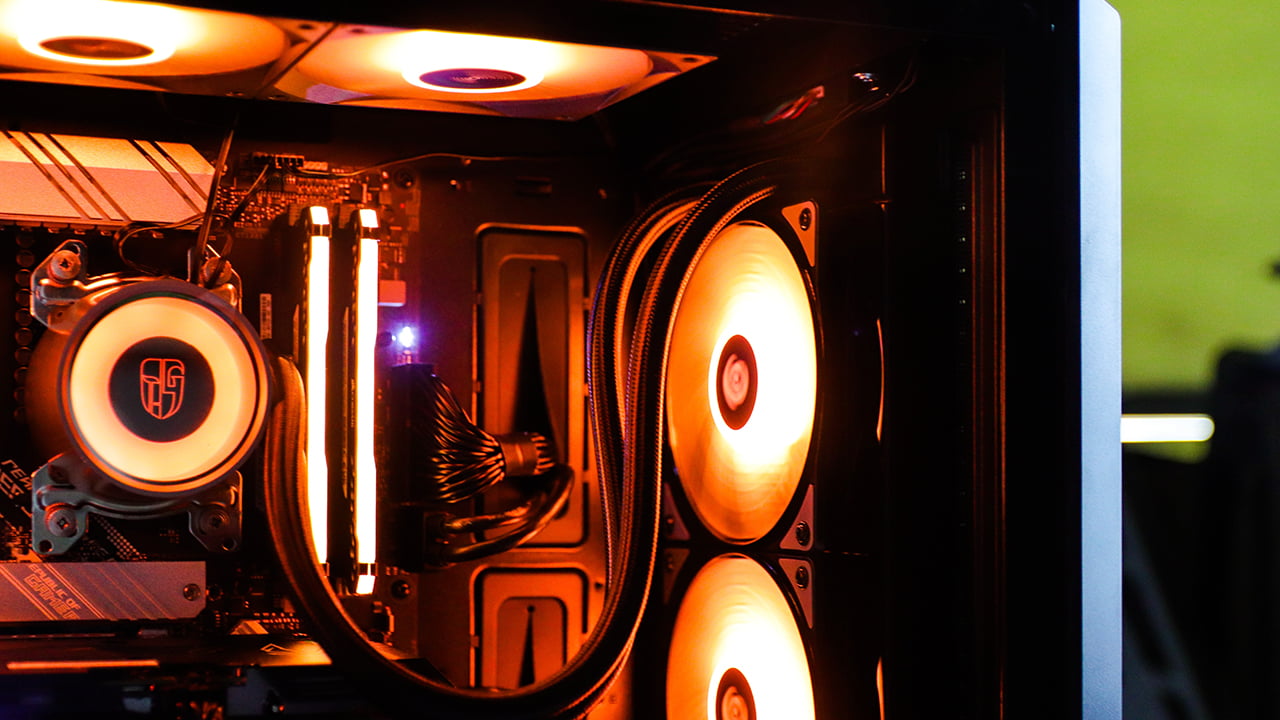
Why Does My Computer Make Buzzing Noise When Turned On
You may encounter a buzzing noise when you turn on your computer. This sound can stem from various sources, including loose components and hard disk activity.
Nonetheless, if you are experiencing buzzing noises, consider the following steps:
- Check for loose internal components and tighten them as necessary.
- Make sure that nothing touches the cooling fans.
- Check each of the fans manually and replace the ones that feel stiff.
If the buzzing noise persists, it might be originating from the hard disk. In such cases, backup your data promptly as the hardware could be failing, and consider seeking professional assistance for repair or replacement.
Bite-sized Summary
When your computer sounds like a jet engine, it can be frustrating and disruptive. But in general, the fixes are quite simple.
To recapitulate, when you are wondering why does my computer sound like a jet, you should clean the fans, tighten the loose components inside, move the system to a cooler place, put new thermal paste on the cooling system, and replace any faulty hardware if found.
Meet Abid Ahsan, the trusted luminary behind BitsFromByte. With a degree in Computer Science and over a decade of experience, Abid’s authoritative expertise shines through his in-depth guides, meticulous reviews, and timely news coverage on software, operating systems, consumer tech products, phones, PCs, and laptops. His dedication to accuracy, transparency, and unbiased reporting makes it easy for our readers to stay informed in this rapidly evolving tech landscape.
